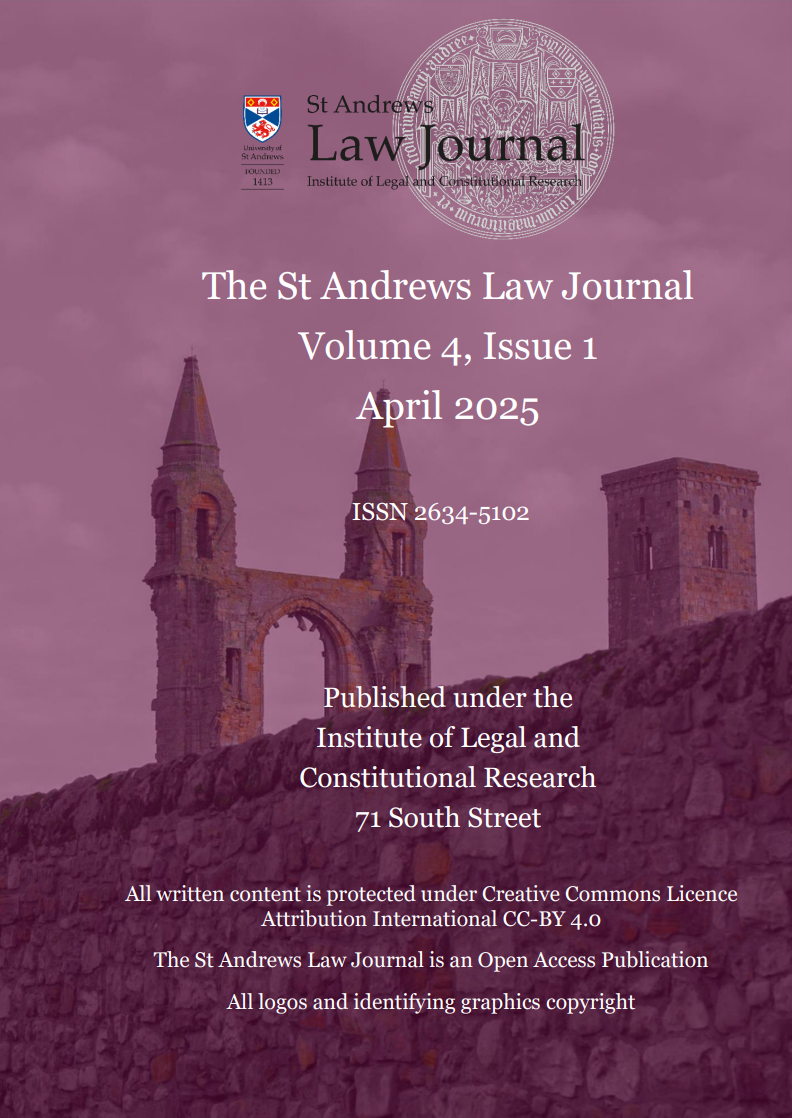“Ransom Payments, Maritime Insurance, and English Common Law: A Legal and Economic Dilemma”
Main Article Content
Abstract
This article explores the complex interplay between maritime piracy, ransom payments, and UK legal frameworks, focusing on the impact of the Counter Terrorism and Security Act 2015 (CTSA 2015) on the shipping and insurance sectors. Modern piracy has transitioned into a systematic hijack-for-ransom model, creating high-stakes legal, economic, and humanitarian challenges for stakeholders. The CTSA 2015, while aimed at preventing the financing of terrorism, complicates the private sector's ability to navigate ransom demands, as it imposes stricter regulatory burdens and criminal liabilities on insurers and shipowners. Despite the UK government’s official policy discouraging ransom payments, these transactions remain legal under specific circumstances, as clarified by key legal precedents such as Westminster N.V. and Masefield. These cases highlighted the courts' recognition of ransom payments as a necessary practice in mitigating harm to hostages and ensuring the safe recovery of vessels and cargo. The article also examines the broader economic implications of the UK’s stance, noting London's central role in global maritime insurance and legal services. It argues that while the government’s counterterrorism priorities seek to address the long-term risks of piracy, such policies often leave the shipping industry and seafarers vulnerable. Industry perspectives highlight the potential consequences of an outright ban on ransom payments, including increased danger to crew members, adverse impacts on seafarer recruitment, and significant environmental risks in cases of abandoned cargo. Moreover, the article critiques the lack of international cooperation on counter-piracy strategies, which exacerbates the challenges faced by UK stakeholders. Ultimately, the article underscores the need for a balanced approach that considers both security objectives and the practical realities of maritime operations. It concludes that an overly rigid anti-ransom framework risks undermining the safety of maritime workers, the economic stability of the shipping industry, and the UK's prominence as a global maritime hub, calling for nuanced policy reform to address these multifaceted challenges effectively.
Article Details

This work is licensed under a Creative Commons Attribution 4.0 International License.
Authors who publish with this journal agree to the following terms:
- Authors retain copyright and grant the journal right of first publication with the work simultaneously licensed under a Creative Commons Attribution License that allows others to share the work with an acknowledgement of the work's authorship and initial publication in this journal.
- Authors are able to enter into separate, additional contractual arrangements for the non-exclusive distribution of the journal's published version of the work (e.g., post it to an institutional repository or publish it in a book), with an acknowledgement of its initial publication in this journal.
- Authors are permitted and encouraged to post their work online (e.g., in institutional repositories or on their website) prior to and during the submission process, as it can lead to productive exchanges, as well as earlier and greater citation of published work (See The Effect of Open Access).

